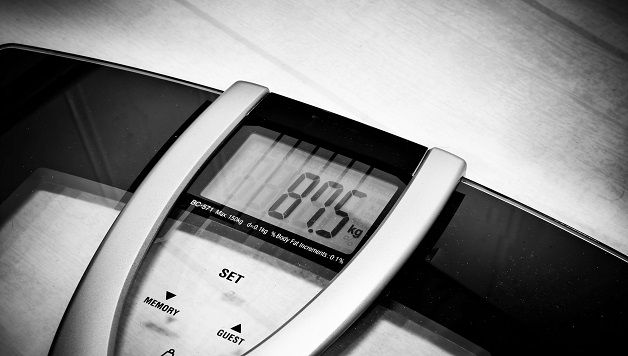In proceedings brought by the ACCC, the Federal Court recently found that Italian cable giant Prysmian Cavi e Sistemi S.r.l. (Prysmian) engaged in cartel conduct in relation to the supply of high voltage land and submarine cables in Australia and dismissed proceedings against French cable company, Nexans SA.
The Federal Court’s decision is the latest development in the ACCC’s high voltage cable litigation, which has been on foot for nearly seven years and generated 14 judgments on topics as diverse as privilege, discovery, strike-out applications, the ‘French Blocking Statute’ and interrogatories.
Background
In 2009, the ACCC brought proceedings against three overseas companies –Prysmian, Nexans SA and Viscas Corporation (Viscas).
The ACCC alleged that, as at October 2001, there was an overarching arrangement or understanding between a number of Japanese and European cable manufacturers and suppliers (the A/R Cartel Agreement) which provided for market sharing and price fixing in a number of countries around the world (excluding the United States).
The ACCC also alleged that there was a specific arrangement in 2003 in relation to an invitation by Snowy Hydro Limited (Snowy Hydro) to tender for the supply of land cables and accessories for use in the iconic Snowy Mountain Scheme (the Snowy Hydro Project Agreement). It was alleged that pursuant to the A/R Cartel Agreement, cartel members agreed to “allot” the tender to Prysmian and gave effect to the agreement by providing price guidance to its competitors in an attempt to ensure that Prysmian would submit the lowest amount and win the tender.
The ACCC alleged that these arrangements contravened the prohibition on price-fixing and exclusionary arrangements in what was then the Trade Practices Act 1974 (‘TPA’).
In 2013, following admissions pursuant to an agreement with the ACCC, the Federal Court imposed a penalty of $1.35 million against Viscas, a Japanese cable supplier, for its part in the cartel conduct. See our previous blog post on this decision here.
The proceedings were contested by the remaining two foreign companies, Prysmian and Nexans SA.
The Judgment
The Court found that the A/R Cartel Agreement had the purpose or likely effect of fixing, controlling or maintaining the price of land cables and submarine cables, because, under the A/R Cartel Agreement:
- a tender would be allocated to a certain cartel member who would set a “floor price”, and
- no other parties would submit a price below that floor price.
The Court also found that the Snowy Hydro Project Agreement, as a manifestation of the overarching A/R Cartel Agreement in relation to a specific tender in Australia, contained both and price fixing provisions and exclusionary provisions (arrangements between competitors to restrict the supply of services to a particular person).
Prysmian
The Court found that Prysmian, by making the Snowy Hydro Project Agreement, gave effect to the A/R Cartel Agreement. Further, by issuing price guidance, it gave effect to both the Snowy Hydro Project Agreement and the A/R Cartel Agreement.
Because the tender for the Snowy Hydro project was submitted by Prysmian’s Australian subsidiary, Pirelli Power Cables and Systems Australia Pty Ltd, the submission of the tender was not found to be an instance of Prysmian itself giving effect to the A/R Cartel Agreement or Snowy Hydro Project Agreement.
Interestingly, the tender was ultimately not awarded to Prysmian, but to another party who was not alleged to be a member of the cartel.
A penalty hearing in relation to Prysmian’s conduct will take place on a later date.
Nexans SA
The ACCC’s case against Nexans SA was dismissed.
Although the Court found that a company in the Nexans group was party to the A/R Cartel Agreement and that Nexans SA was aware of the Snowy Hydro tender process, the Court held that there was not sufficient evidence to establish:
- that Nexans SA was the party responsible for the A/R Cartel Agreement,
- that Nexans SA was a party to the Snowy Hydro Project Agreement; or
- that the relevant individuals identified in the ACCC’s evidence were acting on behalf of Nexans SA (as opposed to another entity in the Nexans group) such that their conduct could be attributed to Nexans SA.
Importantly, in relation to the lack of sufficiently clear evidence to conclude that Nexans SA must have committed to (as distinct from simply knowing about) the Snowy Hydro Project and doing nothing, the Court stated:
“The fact that Nexans SA has not called witnesses who might have addressed the issue cannot be used to overcome the lack of evidence.“
Implications
Cartel conduct outside of Australia
This case has significant implications as it makes some interesting points on the application of the Competition and Consumer Act 2010 (CCA) to conduct outside of Australia.
Section 5 of the CCA (and the TPA before it) extends Part IV to conduct engaged in outside Australia by companies incorporated in Australia or carrying on business within Australia.
Prysmian admitted that it was a registered foreign company and that it was carrying on business in Australia at the relevant time. Nexans SA contested the application of the TPA.
While the ACCC set out a wide range of bases on which it alleged that Nexans SA carried on business in Australia, the Court’s reasoning was simple – by providing services (including administrative services and R&D) under certain agreements with its Australian subsidiary, Nexans SA was carrying on business in Australia.
However, other factors alleged by the ACCC as forming the basis for a conclusion that Nexans SA carried on business in Australia were rejected, including:
- The fact that Nexans SA insured the directors and officers of its Australian subsidiary.
- Representations by Nexans SA in its corporate materials that it had operations in countries such as Australia (these could be taken merely as references to the Nexans Group).
- The fact that Nexans SA had a trademark registered in Australia, and had commenced proceedings in the Federal Court of Australia to protect that trademark.
Uncertainty around the operation of section 5, particularly in relation to international cartel conduct, could be removed if the Government were to implement the recommendation by the Harper Review that the CCA should apply to overseas conduct insofar as it relates to trade or commerce (within Australia or between Australia and places outside Australia). At this stage, however, the Government has indicated that it does not support the recommended change in the form amended, and will be undertaking further consultation in this regard.
In the ACCC’s media release, Chairman Rod Sims noted that:
“This is another example of the ACCC enforcing Australian cartel laws in relation to collusive arrangements made outside of Australia but which have the potential to affect Australian consumers and businesses.”
Regardless of the outcome in relation to Nexans SA, the decision serves as a reminder for foreign companies carrying on business in Australia to ensure that they comply with Australia’s competition laws, even in relation to conduct engaged in outside of Australia.
Penalties
Unless an appeal is lodged, the next step will be for the Court to fix a penalty against Prysmian. Given that the conduct took place in 2003, which was prior to the introduction of the ‘new’ penalty regime (allowing for penalties of up to 10% of company turnover per contravention), the maximum penalty will be $10 million per contravention. This means that the penalty awarded will necessarily be significantly lower than the EUR 104.6 million fine imposed by the European Commission against Prysmian for cartel conduct in the high voltage cable sector in Europe. The European Commission’s decision is under appeal.
Read the full decision by the Federal Court here.
This post was written by Charmaine Lam and Peta Stevenson








